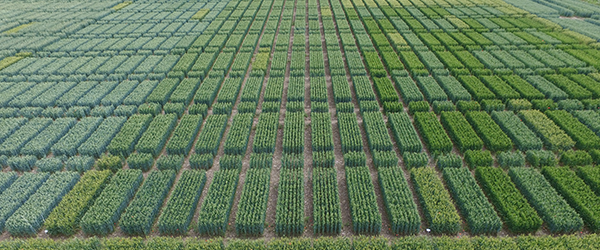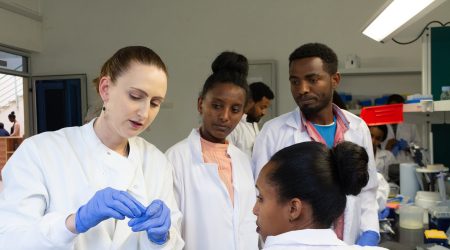New wheat genome sequence assembly is most accurate and complete to date

Scientists at the John Innes Centre, working in partnership with colleagues at the Earlham Institute, The Sainsbury Laboratory and the European Bioinformatics Institute, report in the journal Genome Research the most accurate and complete DNA sequence analyses of the wheat genome to date.
Wheat is one of the three most important global crops, providing over 20% of global calories and protein. The analyses reported today directly support the improvement of this key crop species.
Wheat provides over 20% of global calories and protein.
Professor Graham Moore, who leads the Designing Future Wheat Strategic Programme at the John Innes Centre, said “the information generated by this project is already helping wheat breeding programmes in the UK and worldwide by providing a framework for selecting lines with improved characteristics, such as yield and disease resistance. This means wheat breeders can now develop new superior wheat varieties faster than ever before”.
Dr Cristobal Uauy, a Project Leader at the John Innes Centre which co-leads the project, said “the methods developed by Earlham Institute and John Innes Centre scientists have enabled several important UK wheat varieties to be sequenced.
Working with breeders, we are now using the DNA sequences to see how past breeding decisions have shaped the genetic make-up of their best performing lines. With this information, they will soon be able to predict more accurately which lines to breed from, and to directly identify the most promising progeny. This could save years when making new varieties and accelerate the delivery of scientific discovery to farmers and consumers”.
Research aimed at understanding wheat growth and how it interacts with the environment is a strategically important goal of many John Innes Centre researchers. Professor Michael Bevan, joint leader of the research team, said “the resources we have developed have broken down barriers and provide new ways of studying wheat. This has stimulated many research projects here at the John Innes Centre and world-wide. It’s now a very exciting and productive time for plant research.”
This research was supported by the UK Biotechnology and Biological Sciences Research Council (BBSRC). The outcomes of the research described in the publication; ‘An improved assembly and annotation of the allohexaploid wheat genome identifies complete families of agronomic genes and provides genomic evidence for chromosomal translocations‘ are helping to deliver BBSRC strategy in food security and sustainable agriculture.



